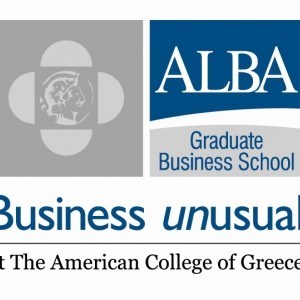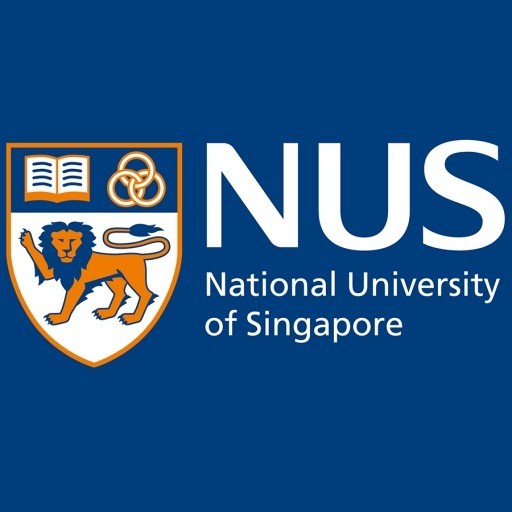Supply Chain and Logistics Management at Edith Cowan University is a comprehensive degree program designed to prepare students for dynamic careers in the global supply chain industry. This course combines theoretical knowledge with practical skills in logistics, procurement, transportation, and supply chain strategy, equipping graduates to meet the demands of an increasingly interconnected world. The program covers key areas such as supply chain planning, inventory management, freight forwarding, warehousing, and the use of advanced technology like data analytics and enterprise resource planning (ERP) systems. Students will gain an understanding of how to optimize supply chain operations, reduce costs, improve service delivery, and enhance sustainability practices within organizations. The curriculum includes a mix of lectures, case studies, industry projects, and internships, providing real-world experience and fostering critical thinking skills. Throughout the course, students will develop strong problem-solving abilities and leadership qualities essential for managing complex logistics networks. By completing this program, graduates can pursue careers in roles such as supply chain analyst, logistics coordinator, procurement specialist, freight manager, or operations manager in various industries, including manufacturing, retail, government, and transportation. The program is designed to adapt to the evolving demands of global markets, with a focus on innovation, technology integration, and sustainability. Students will also have access to state-of-the-art facilities and industry partnerships that facilitate networking and employment opportunities post-graduation. Whether you are interested in starting a career in supply chain management or advancing in the field, Edith Cowan University's Supply Chain and Logistics Management program offers a solid foundation to succeed in this vital sector of the economy.
Supply Chain and Logistics Management at Edith Cowan University offers students a comprehensive education designed to equip them with the essential skills and knowledge needed to excel in the dynamic field of supply chain operations and logistics. The program focuses on developing a deep understanding of how to efficiently manage the flow of goods, information, and resources from suppliers to customers across various industries. Students will explore core topics such as procurement, inventory management, transportation, warehouse operations, and distribution strategies, gaining insights into both theoretical frameworks and practical applications.
Throughout the program, students will engage with innovative concepts like supply chain analytics, risk management, sustainability practices, and the integration of technology in logistics processes. The curriculum emphasizes real-world case studies, collaborative projects, and hands-on experiences that prepare graduates to address complex logistical challenges in a global context. Students will also have opportunities to learn about supply chain design, demand forecasting, and the role of digital platforms like ERP systems in modern supply chain management.
The program is designed to foster critical thinking, problem-solving, and strategic planning abilities, ensuring that graduates are well-prepared to pursue careers in logistics management, supply chain consultancy, procurement, and distribution management. With a focus on sustainability and ethical practices, students will also examine contemporary issues such as environmental impact, social responsibility, and ethical sourcing within supply chain operations.
In addition to coursework, students benefit from access to ECU’s industry partnerships, internships, and career development services, providing valuable opportunities to gain practical experience and make professional connections. Whether aiming to enter the logistics sector or advance existing careers, graduates of the Supply Chain and Logistics Management program will be equipped with the skills necessary to optimize supply chain performance, enhance operational efficiency, and contribute innovative solutions in a rapidly evolving global marketplace.
The Bachelor of Supply Chain and Logistics Management at Edith Cowan University requires applicants to have completed a recognized high school qualification with English language proficiency. Prospective students must demonstrate their ability to undertake tertiary studies, typically through academic transcripts indicating successful completion of required secondary education levels. There are specific subject prerequisites, including mathematics and relevant science courses, to ensure students possess fundamental analytical and problem-solving skills essential for the program.
International students are required to provide evidence of English language proficiency through standardized tests such as IELTS, TOEFL, or PTE, meeting the minimum scores specified by the university. Additionally, international applicants may need to submit documentation of their academic credentials for evaluation and recognition purposes. The program encourages applicants with backgrounds in business, economics, or related fields, but no mandatory prior specialised experience is required.
The program's admission process emphasizes the importance of relevant work experience or industry exposure, although it is not a strict requirement. Applicants should submit their academic transcripts, resume, and personal statement outlining their motivation and suitability for the program. The university may also conduct interviews or request further documentation to assess applicant readiness.
Once admitted, students are expected to complete coursework covering core topics such as logistics, supply chain strategy, procurement, inventory management, transportation, and distribution. The program emphasizes a combination of theoretical knowledge and practical skills, including case studies, industry projects, and internships where available. Students must also fulfill program-specific credits, including capstone projects or industry placements, to demonstrate their understanding of supply chain operations and management principles.
In summary, admission to the Bachelor of Supply Chain and Logistics Management at Edith Cowan University requires a combination of academic qualifications, English language proficiency, and, where applicable, relevant experience or motivation. The program aims to prepare students with comprehensive knowledge and practical skills necessary for careers in logistics, procurement, and supply chain management across various industries.
The Bachelor of Supply Chain and Logistics Management at Edith Cowan University offers a range of financing options to support students throughout their studies. Domestic students enrolled in this program may be eligible for government-funded financial assistance, including HECS-HELP or FEE-HELP, which help cover tuition costs. These options enable students to defer their tuition fees, with repayment deferred until they reach an income threshold. Eligibility for such schemes requires Australian or New Zealand citizenship or Special Category Visa status. For international students, the university provides various scholarship opportunities and financial aid programs based on academic merit, leadership potential, or financial need. Scholarships can significantly offset tuition fees and living expenses, making higher education more accessible. Additionally, students are encouraged to explore government grants, sponsorships, and external funding sources relevant to their country of origin or industry sector. The university also recommends financial planning and budgeting to help students manage their expenses effectively during their studies. Payment options for tuition fees typically include upfront payments, installment plans, or using financial products such as student loans if available. The university's student support services include financial counseling and advice to help students navigate their financial commitments and plan for their academic journey. Overall, Edith Cowan University aims to provide flexible and accessible financing solutions to ensure that students from diverse backgrounds can undertake their education in supply chain and logistics management without undue financial hardship.
The Bachelor of Supply Chain and Logistics Management at Edith Cowan University (ECU) is designed to equip students with comprehensive knowledge and practical skills essential for managing and optimizing supply chain operations across various industries. The program aims to develop professionals capable of designing, implementing, and maintaining efficient logistics systems that meet the needs of global and local markets. The curriculum covers fundamental topics such as procurement, transportation, inventory management, operations management, and supply chain strategy, ensuring graduates have a well-rounded understanding of the entire supply chain process. Additionally, students are exposed to emerging trends in supply chain technology, sustainability practices, and risk management, preparing them to adapt to evolving industry demands. The program emphasizes real-world application through internships, industry projects, and case studies, fostering strong links between students and leading organizations in the logistics sector. Graduates of this program are well-positioned to pursue careers in logistics planning, supply chain analysis, procurement management, warehouse operations, and transportation coordination. ECU’s strong industry connections and practical focus provide students with invaluable networking opportunities and job readiness. Moreover, the program aligns with national and international standards, often incorporating software and tools widely used in the industry, such as ERP systems and supply chain management software, ensuring students acquire relevant technical skills. Graduates may also have pathways to further study, including postgraduate courses in logistics, supply chain strategy, or business management, enhancing their career prospects. The university’s commitment to delivering innovative and industry-relevant education ensures that graduates are prepared to meet the challenges of modern supply chains, contributing effectively to organizational success and economic development locally and globally.










